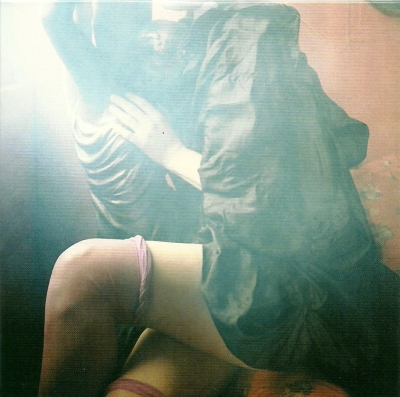Porcelain Opera is beatless domain. No matter how far or deep you look into this record you won’t find any bass drums, snares or toms. Then again, drone music is a kind that doesn’t necessarily rely on the presence of percussion to get by. It’s a vastly open and interpretative genre that doesn’t really have any real sorts of quotas on what is needed for it to get the label it does. But the curious thing about Porcelain Opera is the way it still manages to build momentum despite there being no beats present. Or at least what drives the first two tracks of the album aren’t what I’d call beats in any sort of conventional sense.
The problem for me now comes in trying to describe these sounds that intrigue me so. They are heavily ambiguous and almost have a sort of literal heaviness to their sound. It’s sort of like machinery clunking away in a factory: repetitive but productive. “Prize Mischief Hold” has a deep almost arduous low tone about itself as skittering washes of sound and voices fly about your ears. You’ll find these mangled voices peppered all around the album but you’ll struggle to pick up on any real words (hauntingly the only word I ever hear clearly is “suicide”). Here they almost sound like the voices of the machines in a factory, talking monotonously at one point then chattering like gossiping women the next. Opening track “Razor.P+” on the other hand has a more optimistic tone about it even though it utilizes much the same formula as the track that follows it. I agree, optimistic is an odd term to use here but the drones, the shifting and repeating noises are so ambiguous it’s hard to describe what they are like exactly. I had to settle on optimistic as the way it readies you for the rest of the track’s length and the album itself is finely executed, sort of like the giddy revving of a car’s engine before a race.
A little after half way through the track though Rene Hell – better known as the ever name changing Jeff Witscher – uses another of his signature techniques present on this album. Without much notice the tone slips and the mood changes, here into a dank and dusty arpeggio, complete with what sounds like water trickling away. The air is made heavy with an unknown sinister presence. The only other place these shifts notably take place is on album centrepiece “L. Minx”. At over nine minutes in length it acts as an expansive exploration of tones and textures without ever being indulgent. It simmers to begin with but soon enough the boiling water starts spilling out over the rim of the pan onto the cooker. Staying with this (again) odd analogy, the track seems intent not on getting excited about the overflowing happening but rather what happens when the boiling water hits the gas flames beneath it. Ominous and stretched tones fade in and out lingering enough to be noticed and returning to almost make it sound like a drawn out melody is emerging. But soon enough it changes and all we are left is the blank air and skittering noises. Imagine now a spaceship suddenly losing control and falling to the ground. But as the tension builds another arpeggio emerges, but stays in the distance, juxtaposing the surrounding harshness, like something glorious will happen when the ship crashes.
This collection of images I’m stapling to the songs here might seem odd but as I’ve said, this is music that is hard to describe. For the majority of its half hour run time though it’s hard to actually call what’s playing “music” in any conventional sense. Tracks like “Razor.P+,” “Prize Mischief Hold” and “L. Minx” are what many will likely end up classing as electronic and/or experimental drone and fair play to those who do, their classification is just as valid as my over-zealous and drawn out descriptions.
In terms of more conventional “music” though, Porcelain Opera does have a few sublime offerings. These are in the forms of arpeggios once again but without abstract noise surrounding them they are able to breathe freely and wander aimlessly through your mind. “IV 18:54” is a glimmering and cascading piece that sounds like its erasing all your memories gradually but sweetly. A few bass notes occasionally reverberate just to remind you of your existence but it’s exceptionally easy to completely disappear into. You’ll emerge like you do from a joyous and restful nap, wondering where that wonderful dream world went. The other track I must mention is final track “Gas”. It just sounds so utterly redeeming and resolving that you don’t need to look at your ipod screen, you know this is the final track; these are the last words. The effect is easy to understate and many love to talk of superb opening tracks on albums but here the opposite must be done. Even on my first listen, totally unfamiliar with this record and what it held, I knew this was the end.
However this review should come with a warning of sorts. If you want to be able to appreciate and indulge in Porcelain Opera then you’ll need to dedicate yourself to it. It’s difficult in the sense that it’s beguiling and perhaps even a little too obtuse for its own good at first. Stick with it though and you’ll be intrigued for the majority of its runtime and dazzled at other points. I keep listening and I still feel like I’m missing something, like there’s a gapingly obvious element that’s staring me right in the face over and over as play the album. I want to persist though. This is the kind of record that feels like it will reward the dedicated listener well. And at the very worst, even if I don’t get anything more from it, I’ll still be happy with all I’ve taken from it so far.

